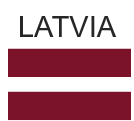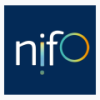This table here below aims at providing an overview of all the initiatives, such as the political communications, guidelines, and legislation, related to interoperability that have been put in place in Latvia.

National Interoperability Framework
The National Interoperability Framework (NIF) is a set of standards, policies, and guidelines that ensure that information and communication technology (ICT) systems can communicate and share data seamlessly. It promotes the development of interoperable systems that facilitate data exchange and collaboration between different organizations and levels of government. The NIF provides a common language and a framework for ensuring that ICT solutions are compatible, secure, and reliable, which enhances the efficiency of public services and improves citizen outcomes.
|
National Interoperability Framework (NIF) Year: 2015 |
The interoperability framework is a set of standards and guidelines aimed at ensuring the provision of services for public administration institutions, enterprises and citizens both in the national and the European context. In was implemented in accordance with the Regulations of the Ministry of Environmental Protection and Regional Development under Cabinet Regulation No. 233 of 29 March 2011. |
Good Practices
This section provides examples at the national level in line with a selection of different thematic areas of the European Interoperability Framework (EIF). Further initiatives and good practices are available in the country’s Digital Public Administration Factsheet.
The Latvian ICT governance body (i.e., Ministry of Environmental Protection and Regional Development) has clearly stated preference to use open specifications in the NIF Recommendation 15 which states: "Give preference to open specifications with an appropriate assessment of functional needs, level of development, market support and innovation". Moreover, Latvia's national policy on public procurements was recently revised by introducing the public deliberation where the interested partners can comment on the technical specification and qualification requirements that are published by the organiser of the procurement. This procedure ensures that all interested parties can provide their feedback to the organisers. An additional benefit for this procedure is that public sector institutions can proceed with the procurement procedure in cases where there is only one interested parties.
By using the in-depth evaluation method (i.e., Deque University WCAG compliance check), 17 institutional websites were checked in 2023 (the sample was made in accordance with Commission Implementing Decision (EU) 2018/1524 of 11 October 2018). Nearly 47 percent of the sites evaluated met the accessibility criteria, nearly 15 percent did not meet the accessibility criteria, and 38 percent did not include these criteria in the sites reviewed. The Web Accessibility Directive (EU) 2016/2102 has been transposed into national legislation (MK regulations No. 445 "Procedure in which institutions post information on the Internet" (adopted on July 14, 2020)). The reconstruction of the central public service portal latvija.gov.lv was implemented in 2023 and complies with the international website accessibility standard EN 301 549. The results of the in-depth evaluation will be taken into account during the portal's warranty. The same requirements have also been implemented in the unified platform of state administration websites (the results of the in-depth evaluation show that websites on the unified platform meet 10% more criteria than other websites.) As a result of the project, more than 120 public websites operate on the new platform, compliance with accessibility requirements at least at an "almost adequate" level. Work is currently underway on the next phase of the project, which will expand the number of these sites.
Latvia has a policy regarding thr preservation of documents (including e-documents) in archives. In this context, it is necessary to identify other types of information (e.g., databases) and develop appropriate policy. There can be found minimum safety requirements for ICT systems where information is stored, which shall be determined by Cabinet Regulation No 442 "Procedures for the Ensuring Conformity of Information and Communication Technologies Systems to Minimum Security Requirements".
For the provision of centralised information circulation and public services, the National Regional Development Agency (VRAA) Integrator of the State Information Systems (VISS) has been developed and maintained. VISS is a set of shared solutions that include data publishing and distribution solutions, web services and data distribution network. Shared services like Payment Module /service and Identity Integration Module/ service are the most popular components of shared services platform operated by the VRAA agency. ERDF and RRF funds are used for further development of the VISS platform and shared services, including improving the performance and efficiency of data dissemination through a centralized data dissemination and aggregation solution DAGR and the "State information resources and interoperability information system (VIRSIS)" .
The State Information and Communication Technology Management Forum is a collegial cross-sectoral consultative and methodical body, which is established to promote effective management of national information and communication technologies. It includes participants not only from ministries but also representatives from the Latvian Association of Local and Regional Governments and the Chancellery of the Parliament of Latvia in ICT issues. The objectives of the Forum are:
- to promote cross-sectoral coordination and cooperation between national and local authorities for the optimal and efficient provision and use of information and communication;
- to improve national and local authorities' action efficiency through ICT;
- to ensure harmonised development of the national ICT infrastructure, reduce the risk of double funding.
To facilitate reuse of existing ICT solutions, the Ministry of Environmental Protection and Regional Development has introduced a process of evaluating EU Recovery and Resilience funded projects to ensure that these projects are in line with the national priorities. An additional gain from this approach is that experts from the Ministry of Environmental Protection and Regional Development can facilitate the opening of new valuable open data.

